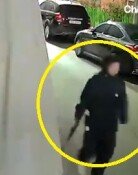TV Debate in Upcoming Presidential Election
TV Debate in Upcoming Presidential Election
Posted July. 28, 2002 22:14,
On July 28, 2002, National Election Commission (Commissioner Yoo Gee-dam) proposed an overhaul of the current election regulations. Under the proposal which will take effect, if put into law, before the presidential election in the upcoming December. The current Speech Session for Parties and the system of paid election staff will be repealed. Instead, campaign methods using the media will be adopted more broadly. For example, candidates TV addresses and joint political ads will be implemented.
The TV addresses will be held 12 times during the 22 days period allowed for campaigning. In detail, KBS will host the nationwide addresses twice, and each of 10 localities will host one time.
The joint ads are to be run by the NEC 5 times in each of 6 newspapers, amounting to 30 in total. The contents are based on the pledged policies each candidate hands in. During the campaign period, the number of ads a candidate can run is increased from 70 to 80 for ads in newspaper and 30 to 100 for ads on radio.
Most of the bills for radio and newspaper ads will be paid by tax money. Thus, according to the NEC, the government will pay for 85.6%, a big increase from the current 64.3%, of the campaign expenditures. Campaigns will be conducted with almost 100% public support.
Once the new system is in full force, the NEC will no longer provide monetary aids to political parties of candidates. In addition, it becomes mandatory to use only one account for all campaign spending items, to use checks for political donations of 1 million won or more and to use only credit cards and checks for a spending item worth more than 100,000 won.
Also proposed are: publication of information on individual donors of more than 1 million won, mandatory approval by the board of directors and reporting to the meeting of shareholders when a corporation makes a donation, prohibition of politicians personal donations to families in the name of, for example, condolence, and 5,000 won donation out of each individual tax return upon his or her agreement at the end of a fiscal year.
The NEC suggested that each political party move its central headquarters into the Congress Complex and streamline its structure mainly for public relations purposes of its policies. It also proposed closing of all branch headquarters and opening of local offices in cities or counties instead.
The NEC also raised the penalties for illegal campaigning. Previously, a candidate-elect forfeited his election victory only when (s)he was sentenced a prison term or fined more than 1 million won. But now, once found guilty of any charge regarding illegal spending or donation, the candidate will has to watch his/her victory automatically nullified. Moreover, anyone receives or gives illegal political donations and/or funds, he or she will be barred from running for elections for some time.
Under the NEC s estimate, each presidential candidate will spend 39,077,440,000 won on campaigning, 18,476,140,000 won less than 57,553,590,000 won. In sum, 1,021,900,000,000 won will be saved.
On July 30, the NEC will hold a public hearing on its proposed change of the campaign law with political parties and civic organizations participating.
Generally, major parties and civic groups responded positively to the proposal.
Jeong-Hun Kim jnghn@donga.com






![[단독]위기의 K배터리…SK온 ‘희망퇴직-무급휴직’ 전격 시행](https://dimg.donga.com/c/138/175/90/1/wps/NEWS/IMAGE/2026/02/20/133389142.1.jpg)
